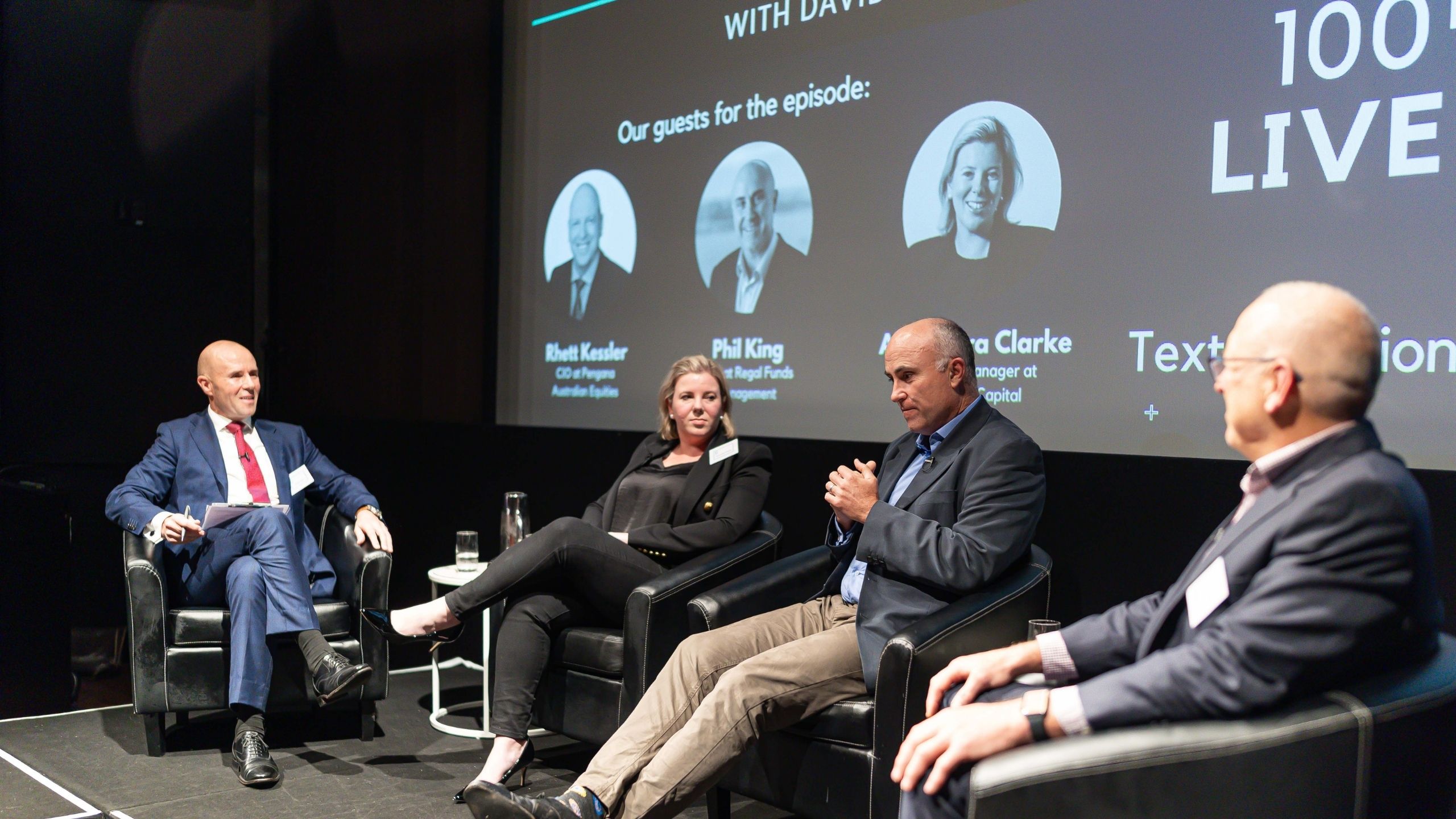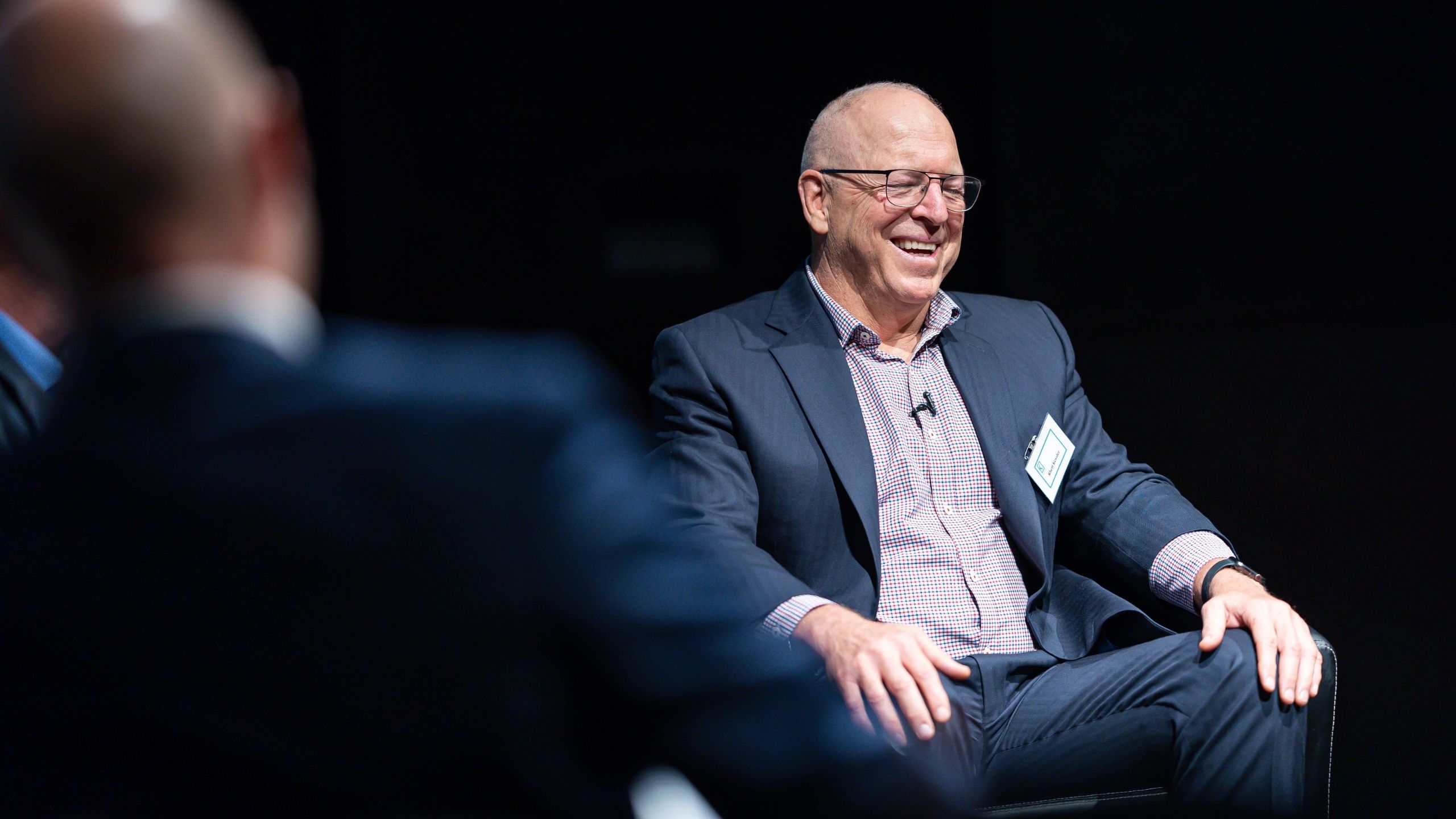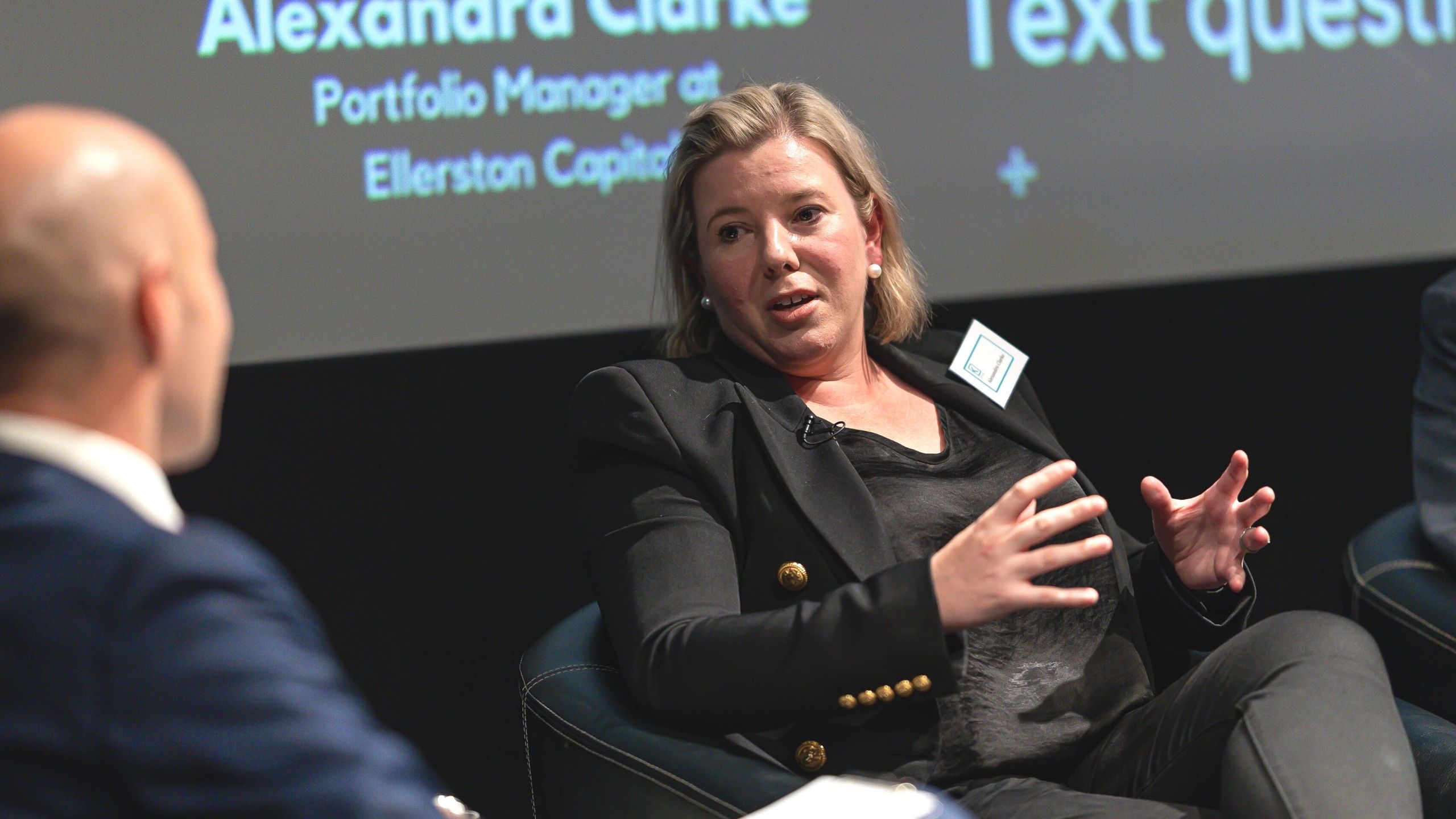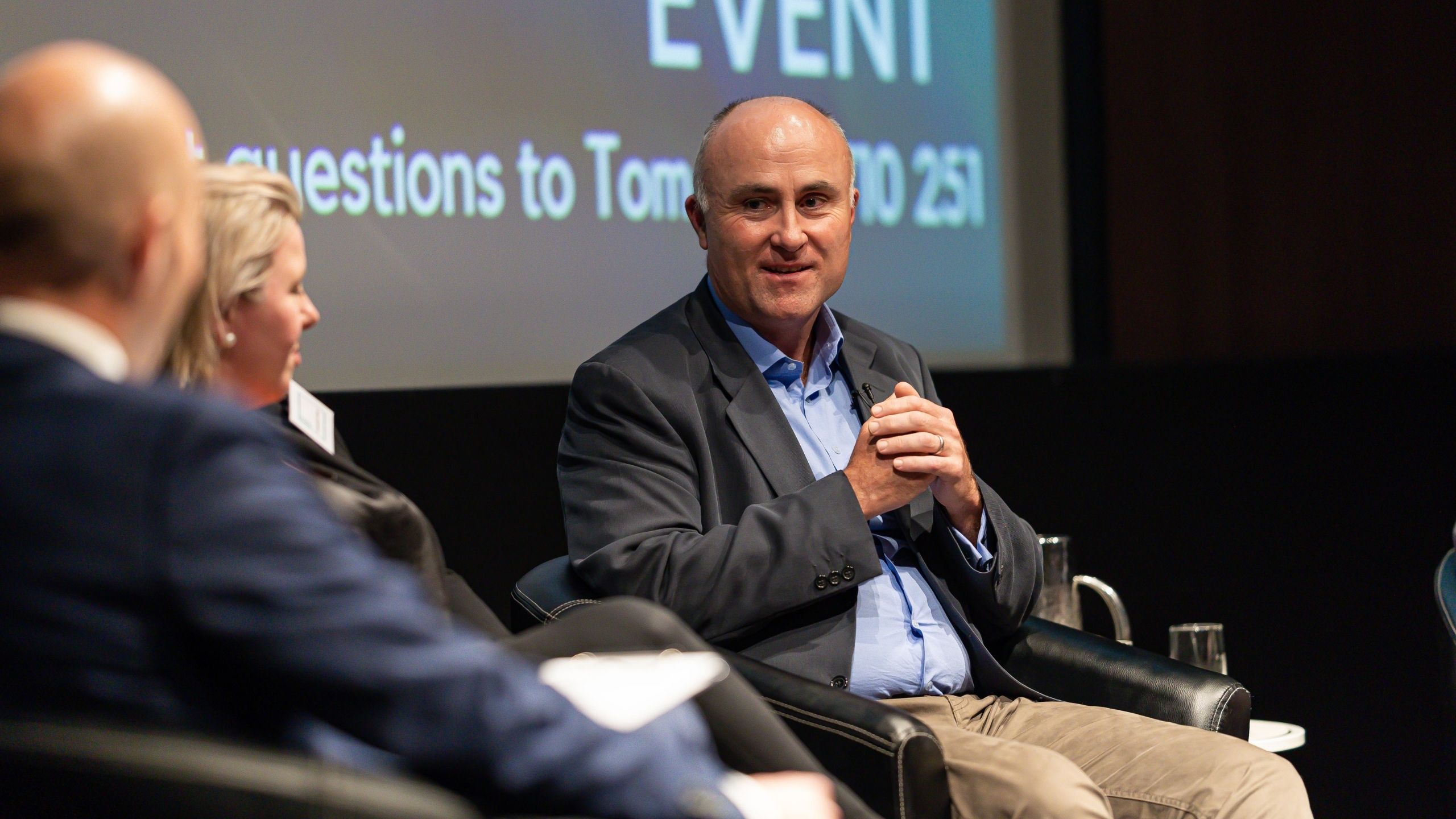Where 3 of Australia's best investors are finding opportunities in 2022
It's not often you get an inside look at the minds of three of Australia's most notable investors, nor learn about where they are finding opportunities amid the chaos that has become synonymous with 2022.
So when offered the opportunity to watch David Clark's live 100th podcast special, Livewire jumped at the chance. Clark was joined by Ellerston Capital's Alexandra Clarke, Pengana's Rhett Kessler and Regal's Philip King, who revealed - in front of an audience of some of Australia's finest financial minds, I might add - some of the greatest learnings from their collective decades in markets.
In this wire, I'll provide a wrap up of my favourite parts of the podcast, including what inspired Clarke, Kessler and King to pursue a career managing money (including how Kessler's "toilet paper and toothpaste" catch-phrase came to be), the sectors they are finding attractive in the current market environment, as well as what is keeping these investment managers up at night.
On Tuesday next week, you can catch the full Koda Capital Inside the Rope podcast. Kessler, King and Clarke will reveal the worst crash of their careers, the common mistakes and biases that plague investors, as well as the personal traits that have helped them become some of the biggest names in Australian investment.
Note: These quotes are taken from a live recording of David Clark's Inside the Rope podcast. Don't miss the full recording, out on Tuesday, May 3rd.
.jpg)
3 defining moments from 3 careers
Clarke started out her career as a sell-side analyst, but like many, she always wanted to manage money. She explained that she was driven by the challenge of managing risk, of figuring out how liquid companies were, where they should sit in a portfolio and meeting some of business' best.
"The fact that every single day, I could look at a new business, see a new industry, meet people that are basically at the leading edge of their industry, whether it's an automaker, whether it's an agricultural company, whether it's biotech," she said.
"You're seeing something at the start of its evolution, especially with what I do, which is at the smaller end of the market. And I thought this was going to be a great career."
Meanwhile, King said he has always been fascinated by the stock market. He bought his first shares when he was just 14, after an early introduction to investment from his grandmother.
"My first introduction to the stock market was when I was about four or five. I remember visiting my grandparents and at one o'clock every day, my grandmother would turn on ABC radio and listen to the lunchtime stock prices from the Sydney Stock Exchange," he recalled.
"I just found it fascinating. She would write down these numbers in a little exercise book in pen every day."
From watching his grandmother, King learnt two things, the first being, what's the purpose of information if you don't use it, and the second - investors should try to only buy good companies.
"(My grandmother) would write down these numbers every day, but she'd never trade. And I would think, what a waste of time," King said.
"And the second takeaway from watching my grandmother, was she had a list of what you might call "penny dreadfuls" that she had bought in the 1960s mining boom. I thought, why don't you buy some good companies?"
For Kessler, a defining moment in his career came just three months into his first job in 1987 (aka Black Monday).
"I remember coming home absolutely devastated. And my dad said, 'What's up?' And I said, 'Oh, the market's done. I've ruined my career.' And he quietly said, 'Get in the car,'" Kessler recalled.
"We lived in Johannesburg at the time and we drove through suburb after suburb and he kept saying, 'What's on the left, what's on the right?' And I kept saying, 'Cars, houses, people'. And after about half an hour, I said to him, 'Okay, I get there are a lot of houses, cars, and people. What's the point?'
"He turned around to me, and he said, 'Johannesburg's a pimple on the bum of the rest of the world. But tomorrow morning, that guy over there... He's going to get up. And he'll want his toilet paper, he'll want his toothpaste and he'll want his toasties. And he doesn't care whether the stock market's crashed or not."
And that was Kessler's introduction to markets, realising that "if I can buy toilet paper and toothpaste type companies, I'll be all right."
.jpg)
Where these investors are finding opportunities
While King points to rising rates as a key indicator that should be on investors' radars (and whether or not we are going to have eight hikes as the market is pricing in), he also believes that now, more than ever, investors cannot assess the market as a whole.
"There's a great decoupling occurring at the moment. Half of the stocks on the NASDAQ are off 50% from their highs last year. And to me, loss-making tech is in a huge bear market and we don't really want to go there at the moment," he said.
On the other hand, inflation, rate rises and war are actually good for some sectors and stocks, King said.
"We are very positive on the resource sector, mainly because of the supply side more than anything. I think commodity prices will stay strong over the next five or so years at least," he said.
"So even if we do see a mild recession, I think resources are still a good place to be."
Clarke agrees that resources look compelling in this new market regime, however, notes that without experience in this arena, investors would be best placed to explore opportunities within industrials.
"We're looking for companies that are basically self-sufficient, that have the ability to grow their margin, grow their market share and not really worry too much about what's happening in the environment," she said.
"We're predominantly industrial investors because of how we look at businesses. We like cash flows and balance sheets."
While small resources have lifted around 30% this year, small industrials are still trading in the red, she said.
"We're seeing some really well-priced industrial businesses that can raise prices and gain market share. And that's where we're focusing our attention," Clarke said.
Meanwhile, Kessler notes that investing, when it comes down to it, is about maintaining or growing your purchasing power of money. So with inflation running at 5%, bonds and negative-yielding fixed interest rate products are just not going to cut it.
"We have to try to find businesses that can manage inflation," he said.
Investors would be best placed to invest in companies with pricing power and "inelasticity of demand" - or in other words, the ability to raise prices and not lose customers, he said.
"They've got to have the balance sheets to withstand that as well. Then inflation should work for you - you're going to make more money. That's how you'll preserve your purchasing power," Kessler said.
.jpg)
And what's keeping them up at night
While King reveals that he is actually "sleeping really well at the moment", he believes the biggest risk in the world right now is the Chinese property market.
"I think it's the biggest bubble in the world," he said.
"A lot of Chinese (people) just own property because they expect it to go up. They don't bother renting it. Which in my mind, is the definition of a bubble."
Adding to his fears is the fact that this property market has been driving the Chinese economy, while the Chinese economy has been driving the global economy.
"It's starting to unravel. There are property developers going broke, selling stock," he said.
"And China's never seen a fall in property prices. So I'm a bit worried about that, but I'm still sleeping."
Meanwhile, Clarke notes that the next major headwind for markets is likely to be one the market doesn't expect.
"It's the unknowns. That's the bit that scares me. What haven't we noticed that we should be paying attention to?" She said.
"So it's always making sure that you're keeping a wide eye on what's happening elsewhere in the world and what could impact us here in Australia."
For Kessler, it's investors' "she'll be right" attitude toward supply chains has him worried.
"Everyone thinks it's just going to get better. It's just temporary," he said.
"I worry that maybe (supply chain disruption) gets worse. That maybe it doesn't repair.
"Globalisation is reversing. So say I've got pricing power, I've got inelasticity of demand - what happens if I just can't get the product to sell? That's, what's keeping me up at night."
.jpg)
Never miss an update
Enjoy this wire? Hit the 'like' button to let us know. Stay up to date with my content by hitting the 'follow' button below and you'll be notified every time I post a wire.
Not already a Livewire member? Sign up today to get free access to investment ideas and strategies from Australia’s leading investors.
2 topics
4 contributors mentioned

